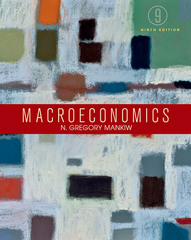Question
Behavioral economics has great policy implications far beyond Raj Chetty's research into Danish savings, working habits with the EITC and housing voucher policies. Chetty's thesis
Behavioral economics has great policy implications far beyond Raj Chetty's research into Danish savings, working habits with the EITC and housing voucher policies. Chetty's thesis that using behavioral economics, not just the neoclassical model, as a pragmatic approach to policy could even be applied to last week's focus on externalities and environmental policy. For instance, it's easy to assume that people will automatically abate if faced with a carbon tax because it's cheaper to do so. However as Chetty illustrates in his analysis of retirement savings, people often do not pay close attention or procrastinate their changes. So, it's possible that people wouldn't switch to electric vehicles or pollute less simply because of the inconvenience or hassle of doing so even if it's cheaper. An opt-out system of abatement, however, is infeasible because polluting technology already exists. Yet knowing this behavioral pattern could inspire lawmakers to enact a campaign of loss framing to stop the behavioral pattern of indifference or procrastination. After correcting the unproductive behavioral pattern, then the neoclassical model would be more useful in seeing a carbon tax inspire less pollution based on cost.
How can Chetty's findings be applied to our work on externalities and environmental policy?
Step by Step Solution
There are 3 Steps involved in it
Step: 1

Get Instant Access to Expert-Tailored Solutions
See step-by-step solutions with expert insights and AI powered tools for academic success
Step: 2

Step: 3

Ace Your Homework with AI
Get the answers you need in no time with our AI-driven, step-by-step assistance
Get Started


